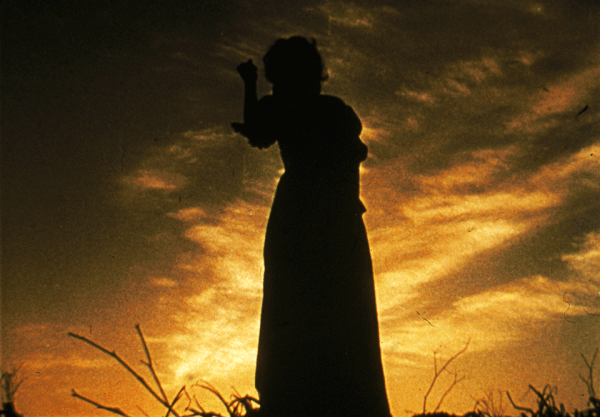Hangry: Hunger in the Civil War
ECW welcomes guest author Katie Brown
“As God is my witness, I’ll never be hungry again!”[1]
Scarlett O’Hara’s famous declaration from Margaret Mitchell’s Gone with the Wind is one of the most well-known lines from the story and movie. It’s a powerful moment in which Scarlett refuses to be swept along by the tide of events any longer—instead, she will fight to survive, no matter what it takes.
While modern audiences recognize Gone With the Wind’s problematic portrayal of history, this line points to a very real and understudied experience of the Civil War: just as hunger plays a large role in Gone with the Wind, it also was a constant presence in the Civil War itself. But was hunger a tipping point for real people of the Civil War as it was for Scarlett O’Hara? How hungry were people who experienced the Civil War?
The largest issue with answering this second question is that hunger is subjective. As a result, it is impossible to really say how people experienced hunger. Despite this limitation, it is clear that hunger was a widely experienced result of the war. Soldiers on both sides faced limited or a complete lack of rations at one point or another, whether due to shortages, poor resource management, or isolation from supply lines. The war itself began with hunger, as one Union officer who experienced the surrender at Fort Sumter argued in defense of his men, “Never did famished men work more bravely than those who defended that fortress… Every man was true and faithful to his post, and the public may be assured that hunger and want of ammunition alone caused us to leave Fort Sumter.”[2] This hunger continued to haunt soldiers throughout the conflict, as August Scherneckau of the 1st Nebraska Infantry wrote in February 1863, “How often had I envied a luckier or more frugal comrade for his bite of cornbread or cracker! To suffer hunger and still have to march with a pack is truly no fun!”[3]
Civilians, regardless of age, ability, or gender, were also susceptible, though civilians in areas of conflict, including the South and border states, such as Missouri, Maryland, and Kentucky, were far more likely to experience it than residents of Northern states.[4] Enslaved and newly freed people were also vulnerable to shortages of food. There are also many other populations faced with hunger as a result of the war: freed people in contraband camps, white refugees fleeing the armies, prisoners of war, and residents of areas impacted by guerrilla warfare all experienced hunger differently as a result of their unique situation.
Despite its prevalence, hunger has largely been overlooked as a topic of study; however, the examination of hunger provides important insights into behavior during the war. As one newspaper editor from Staunton, Virginia, wrote: “hunger renders men the most reckless. An angel could not bear its gnawing with patience, and few men are so saintly or timid as to be deterred from wading through blood or fire to mitigate its pangs.”[5] As this quote reflects, being “hangry” is not a new experience and the behavioral impacts of hunger could be quite violent in Civil War America. This series will examine the many facets of hunger: who experienced it, how they experienced it, how they talked about it, and the problems they faced trying to fix it—all in an interest to understand the role that hunger played in the larger context of the war. If Scarlett O’Hara is anything to go by, hunger was an important issue to the people of the Civil War and is one that’s crucial for understanding the story of the war in all of its human complexity.
To be continued…
————
Katie Brown is an emerging historian and freelance writer who graduated with her Master’s in History in 2018 and has since worked as the Program Coordinator for the Virginia Center for Civil War Studies at Virginia Tech. She believes in the power of history to teach a better understanding of the human experience and strives to write and teach history that is relevant to all.
Sources:
[1] Margaret Mitchell, Gone with the Wind (New York: The MacMillon Company, 1936), 357.
[2] “The War.” New Hampshire Sentinel, April 25, 1861.
[3] James E. Potter and Edith Robbins, eds. Marching with the First Nebraska: A Civil War Diary (Norman: University of Oklahoma Press, 2007), 75.
[4] Civilians and soldiers in the North were very unlikely to face hunger as a direct result of the war in the same way that Southerners and residents of the border states did; however, it is impossible to say that the war did not lead to hunger for any Northerners. It is possible that economic privations as a result of the war brought poverty to some Northern families or that unreliable soldiers’ salaries left other Northern families without food; these effects are just more difficult to trace.
[5] Virginia’s Private War, p. 100 n 59

“A Great Sacrifice: Northern Black Soldiers, Their Families, and the Experience of Civil War” by James G. Mendez shed much light on the differences between the Union homefront experiences of black families in contrast to white families. I recommend it highly.
I have Miss Scarlett’s quote on my refridgerator!
Thank you @Meg Groeling!
Living in Maryland, I had an elderly couple as neighbors and the husband told me that his grandparents knew what hunger was because the Union soldiers that patrolled the area constantly stole their food and left nothing.
Scarlett’s line must have really played well to an audience still dealing with the Great Depression.